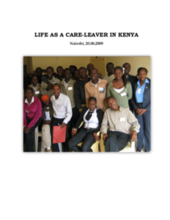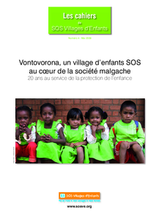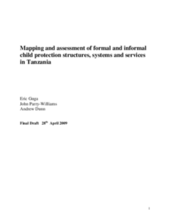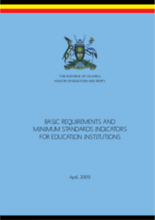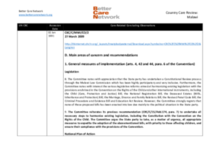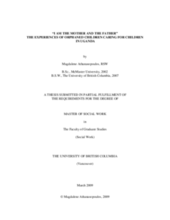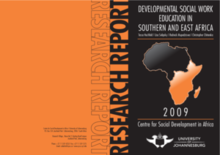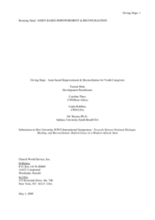Displaying 1431 - 1440 of 1627
This study uses recent data from published studies in sub-Saharan Africa to illustrate deficits and document community responses for children who have lost parents to the HIV/AIDS pandemic.
This report is the result of a workshop held with a group of young care-leavers drawn from ten different charitable children’s institutions or rehabilitation centres and of a questionnaire carried out on the young care-leavers.
This document contains revised alternative care guidelines for Ethiopia. It discusses how development intervention has shifted from a needs based approach to a rights based approach.
A l’occasion du 20eme anniversaire de SOS Villages d’Enfants Madagascar, SOS Villages d’Enfants a choisi de consacrer ce cahier à une étude réalisée sur le village SOS de Vontovorona, première pierre de la présence de SOS Villages d’Enfants sur le sol malgache.
In 2001 the Republic of Uganda's Ministry of Education and Sports (MoES) issued the Basic Requirements and Minimum Standards Indicators for Education Institutions (BRMS) to schools and other relevant stakeholders to guide the organization and management of educational institutions. This BRMS has been reviewed by a multi-sectoral team comprising of members from the public and private sectors, development partners, international and national NGOs and other organizations.
This country care review includes the care-related Concluding Observations adopted by the Committee on the Rights of the Child.
This study explored the experiences of orphaned children who specifically take on the role of being both mother and father to their siblings.
This research project aimed to contribute to knowledge development in understanding how the social development approach is actually being used by individual schools of social work in Southern and East Africa, and how this approach is impacting social work training, through primary empirical research.
This paper shares the philosophy and key components of the African development initiative Giving Hope that works with youth caregivers through an asset-based empowerment methodology. The approach facilitates the restoration of youth caregivers’ sense of self, belonging, power, and collective responsibility.

